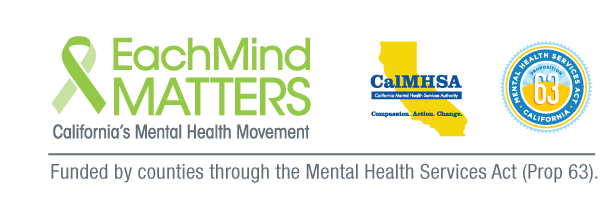Mission Statement: To educate young people about critical health topics through the medium of film and promote social justice by changing conversations in schools and communities.
The Directing Change Program and Film Contest was launched as a demonstration initiative as part of Each Mind Matters: California’s Mental Health Movement funded by the Mental Health Services Act (Proposition 63) and administered by the California Mental Health Services Authority (CalMHSA), an organization of county governments working to improve mental health outcomes for individuals, families, and communities. The program was created by and has been implemented since 2012 by Your Social Marketer, Inc. Beginning with the 2017/18 fiscal year, the Directing Change Program and Film Contest began operating as a non-profit organization. This year marked another big milestone for the program with the launch of Directing Change Oklahoma.
The Directing Change Program and Film Contest engages students and young people to learn about the topics of suicide prevention and mental health in an innovative way: a film contest.
We learn through actions and when we apply knowledge our minds begin to change. Anyone can read about important health topics, but to create a 60-second film about them, be respectful, and think deeply about impacting the opinion of their peers requires a level of involvement that has lasting impact.
The Directing Change Program starts with exposing youth to knowledge about the topics by providing instructional tools to educators and educational resources to youth. From here, youth must apply knowledge to formulate and create their own unique message for their peers. The creative process of filmmaking requires youth to synthesize their knowledge resulting in a deeper level of understanding. Directing Change, integrates sound pedagogical principles into the filmmaking process so that participants are engaged via all methods of the “learning spectrum”: to see, experience, discuss, and apply. Youth are challenged to critically analyze key components of health and social justice related topics and how best to communicate these in their films. Once created films are used in schools and communities to raise awareness and start conversations and impact social change.
For the past five years the program has focused on suicide prevention and mental health.
Suicide Prevention: Inspire a new generation to know the warning signs for suicide and how to support a friend. Pain isn’t always obvious, but research shows that young people turn to their peers and family for assistance, but fewer than 25% of peers tell an adult about a friend’s problem.
“Last summer a close family member died by suicide and it was, and still is, a tragedy for our family. I felt this program was a chance for me to do my part, to help another family from going through the same thing by talking about warning signs and suicide.” Youth Participant
“The biggest way in which making the film impacted us is the conversations that it opened up. Through the backdrop of filmmaking the three of us had some serious talks about the subject of suicide, its effect on our generation, and the effects it has had on each of us personally.” – Student, Riverside Poly High School- Riverside County
View film: “A New Tomorrow”
View Film: “Tell Someone”
View Film: Directing Change and Suicide Prevention
Mental Health Matters: Change conversations about mental health in families, schools and communities and increase help seeking. About 1 in 5 youth experiences a mental health challenge, but on average young people wait 6 to 8 years to get help from the first time they experience symptoms. One major reason that prevents young people from getting help is the fear of what others may think, how this will impact their future, and simply not taking their mental health seriously.
“When my teacher, Mr. Graham, approached me about participating in Directing Change I thought maybe I can get some extra credit, earn a little cash for my college tuition. A year later my father was diagnosed with Bipolar Disorder and my little sister with Anxiety and Depression.
Schools don’t cover it very well. The media definitely doesn’t cover it well and it is just not something most people understand very well. But I was prepared and I only have Directing Change to thank you for that. The program didn’t just give me education, but hope and the knowledge that people with mental illness can live and thrive. Directing Change has given me a lot more than a little extra cash, it has given me a passion to end the stigma about mental illness and hope that one day everyone who is silently dealing these issues will feel safe enough to ask for help.” Nick Walker
View Nick’s film “If We All Speak Loud Enough”
View Directing Change and Mental Health
Through the Lens of Culture: Reach young people from non-English speaking families, immigrant and other cultures to communicate about mental health wellness and suicide prevention through the lens of culture. Changes in gender roles and expectations, issues of conformity and assimilation, pressures to succeed, and feelings of isolation and victimization can all increase the stress levels and vulnerability of individuals. Numerous research studies have demonstrated that young people in crisis who are from non-English speaking families and immigrant cultures are far less likely to seek help from the behavioral health system. These young people must grapple with real and perceived stigma and discrimination rooted in family-based cultural belief systems and in their status as outsiders in the mainstream culture.
“One of the reasons we made the film is to show the perspectives from an African American male, to show that just because you are strong doesn’t mean you can’t struggle.” Participant, UC Riverside
View Film “Pain Never Lasts”
View Film “Caged Bird”
View Film “Suicide on Indian Country”



